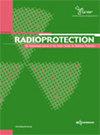虚拟志愿服务能否增强核紧急情况下的信息弹性?灾难知识工作者和虚拟应急小组的潜在作用
IF 1.4
4区 医学
Q4 ENVIRONMENTAL SCIENCES
引用次数: 4
摘要
在安全和安保领域,各种形式的非正式志愿服务正在兴起。本文主要研究一种新型的非正式志愿服务模式——虚拟志愿服务。该研究利用核紧急情况的复杂背景来探索(1)以虚拟志愿服务形式的非正式志愿服务可以在多大程度上发展信息弹性;(2)所涉及的问题和挑战。该研究依赖于从18个芬兰公共当局和非政府组织行为者收集的访谈数据,这些行为者担任与核应急有关的专家或管理职位。研究结果表明,非正式虚拟志愿服务可以在社会信息弹性的发展中发挥作用。然而,正如之前的研究表明的那样,虚拟志愿服务可能是一把双刃剑。由于我们生活在一个动荡的时代,存在着误传和虚假信息的真实风险。确定的风险引发了一场关于在核应急准备、响应和恢复中纳入或排除无关联的灾害知识工作者和虚拟应急团体的辩论。本文章由计算机程序翻译,如有差异,请以英文原文为准。
Could virtual volunteerism enhance information resilience in a nuclear emergency? The potential role of disaster knowledge workers and virtual emergent groups
Informal volunteerism in its various forms is on the rise in the safety and security arena. This study focuses on a new mode of informal volunteerism, virtual volunteerism. The study uses the complex context of a nuclear emergency to explore (1) the extent to which informal volunteerism, in the form of virtual volunteerism, can develop information resilience and (2) the problems and challenges involved. The study relies on interview data gathered from 18 Finnish public authorities and NGO actors working in expert or managerial positions connected to nuclear emergency response. The study results suggest that informal virtual volunteerism could play a role in the development of information resilience in society. However, as suggested in previous studies, virtual volunteerism could be a double-edged sword. There is a real risk of mis- and disinformation because of the volatile times in which we live. The identified risk sparked a debate on the inclusion and exclusion of unaffiliated disaster knowledge workers and virtual emergent groups in nuclear emergency preparedness, response, and recovery.
求助全文
通过发布文献求助,成功后即可免费获取论文全文。
去求助
来源期刊

Radioprotection
ENVIRONMENTAL SCIENCES-PUBLIC, ENVIRONMENTAL & OCCUPATIONAL HEALTH
CiteScore
3.30
自引率
54.50%
发文量
35
审稿时长
>12 weeks
期刊介绍:
Radioprotection publishes articles on all aspects of radiological protection, including non-ionising as well as ionising radiations. Fields of interest range from research, development and theory to operational matters, education and training. The very wide spectrum of its topics includes (theoretical and practical aspects): dosimetry, instrument development, specialized measuring techniques, epidemiology, biological effects (in vivo and in vitro) and risk and environmental impact assessments.
 求助内容:
求助内容: 应助结果提醒方式:
应助结果提醒方式:


